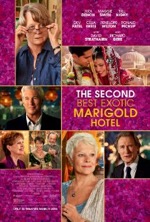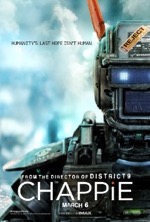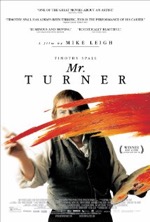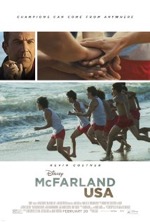March 2015
The Second Best Exotic Marigold Hotel (PG)
21/03/15 16:08 Filed in: 2015

Starring: Judi Dench
March 2015
This review was originally tweeted in Real-time from the back row of a movie theater and appears @BackRoweReviews. Though efforts were made to tease rather than ruin this movie’s memorable lines and moments, some spoilers may exist in the following evaluation. The original tweets appear in black, while follow-up comments appear in red. For concerns over objectionable content, please first refer to one of the many parental movie guide websites. All ratings are based on a four star system. Happy reading!

#MaggieSmith most definitely isn’t getting her kicks on Route 66.
It’s abundantly clear that this scene was written only to generate a laugh. Since the meeting is in San Diego, why didn’t Patel and Smith just fly into the city’s airport rather than driving a convertible across the scorching hot desert?
“Get her some boiling water.” A humorous scene on the proper way to make a cup of tea.
“Why die here...when I can die there?” Quite a sales pitch.
Smith tells Patel to shut up and let her do all the talking during the meeting with David Strathairn. Patel exercises restraint for about 14.3 seconds.
Taxicab Confessions: India Edition.
Or, as the plot soon reveals, Strangers on a Taxi.
Sagai= Engagement Party. Let the drama begin.
“I went with low expectations and came back disappointed.” The eternal pessimist.
Maggie Smith’s line actually sounds like it could’ve been delivered by one of the two old coot critics in The Muppet Show.
“The fastest fox in the forest.” Or, the fastest talker in India.
“There’s just so much bloody potential” in life. And so many frustrating limitations.
Sometimes having too many options is worse than just choosing among a handful of opportunities. Having seemingly unlimited potential might also lead to a kind of ennui that prevents the person from getting anything done in life...the “Jack of All Trades, Master of None” syndrome.
#DevPatel asks his mom to take one for the team. Humorous.
Most women wouldn’t resist such an offer. I mean...we’re talking about Richard Gere here.
The wants and fears monologue is poignant.
One day after watching the movie I don’t really remember what was said here, but I’ll trust my earlier self that this was a great scene.
#DevPatel should’ve learned the choreography. He looks like a doofus on the dance floor.
Actually, that’s still better than what I could do in his place. #TwoLeftFeet.
“Shall we write the next chapter?” That’s when you know you’ve spun a good yarn.
“How much time do you have?” Way to go for the jugular.
A question you should never ask someone over 65.
Death by cow. Amusing.
Of course, there’s cultural relevance here since the train’s passengers would all be placed in harm’s way in order to save a cow…a sacred animal in Indian society.
I don’t do advice...I do opinions.
But if you offer your opinion on how something should be done, isn’t that kinda’ like offering advice, right?
The roots and wings wedding speech is touching.
Especially the script change portion at the end.
“There’s no present like the time.”
A nice play on words, but also a poignant nugget of wisdom. This phrase reminds me of Gandalf’s instruction to Frodo in The Lord of the Rings: The Fellowship of the Ring (2001): “All we have to decide is what to do with the time that is given to us.”
Final analysis: a natural extension of the first film with some new adventures and characters.
Although I miss Tom Wilkinson from the first film, the addition of Richard Gere, Tamsin Greig and David Strathairn were good casting choices that paid off huge dividends in the film.
Rating: 2 1/2 out of 4. A cultural and relational journey that was worth the return trip.
The Best Exotic Marigold Hotel (2011) was a crowd-pleasing, life affirming dramedy based on Deborah Moggach’s book of the same name. Most of the principal actors have returned in the sequel (Tom Wilkinson is out, while Richard Gere and David Strathairn are in), and the setting, tone and theme (i.e., making the most of the Golden Years) is fairly consistent with that of its predecessor. So why a sequel? Well, the first film was a modest hit, especially among the AARP set, so there was certainly financial justification for green lighting a sequel. Tapping the scintillating cast (which includes: Judi Dench, Maggie Smith, Bill Nighy, Penelope Wilton, etc) for one more go-round also must’ve seemed like a surefire way to win at the box office. Ultimately, having a built-in audience is the kind of safety net studios, like Fox Searchlight, are greatly desirous of, provided that the majority of that audience is still around to enjoy the sequel (after all, it’s been four years since the release of the first movie). Life imitates art in the follow-up film: just as the title has been established as a recognizable, bankable brand for the film franchise, it’s also inspired a franchise of hotels “stretching across India and beyond” in the world of the story. Sprinkling additional curry into the savory story are subplots involving: engagement/wedding parties (with plenty of Bollywood-style pomp and dancing), a surprise visit by a hotel inspector and a handful of percolating romances, all of which bloom into relationships by movie’s end…just in case we never get another chance to advance the story with this gracefully aging cast. What ailed the first film, i.e., shallow characterizations, uncomplicated plots and a heaping helping of sentimentality, also afflicts the sequel. Conversely, the elements that worked well in the original movie—gorgeous Indian locales, a dazzling cast, a positive, inspirational, meaningful story line—work like a charm here as well. The generation reconciliation between Patel and Smith’s characters, who are co-partners in the hotel franchising venture, is a clever way of keeping young and old viewers engaged throughout the movie. Also, when not preoccupied with sophomoric subplots, the movie effectively presents us with a sometimes humorous, sometimes profound look at what it means to grow old. The straightforward plot is the perfect compliment to the film’s feel good exuberance, and is the antithesis of the typical, dreary old age film like the uber-depressing Amour (2012). When all is said and done, this Second film is tons of fun and has a lot of dignity to go along with its levity. So, will there be a Third film in the series? And will Maggie Smith’s character return? Time will tell. But to be on the safe side, the studio should start production sooner rather than later. With a cast this seasoned, time is of the essence.
Chappie (R)
15/03/15 15:33 Filed in: 2015

Starring: Sharlto Copley
March 2015
This review was originally tweeted in Real-time from the back row of a movie theater and appears @BackRoweReviews. Though efforts were made to tease rather than ruin this movie’s memorable lines and moments, some spoilers may exist in the following evaluation. The original tweets appear in black, while follow-up comments appear in red. For concerns over objectionable content, please first refer to one of the many parental movie guide websites. All ratings are based on a four star system. Happy reading!

A documentary style opening that details the plight of robo-cops in Jburg.
This mockumentary style opening has become a signature of Blomkamp’s films.
Criminals seek a robot remote. Well, even Data had an off switch.
The first in a long string of silly story devices in the movie.
Robot Gangster #1. A hair braided scheme.
A robot police force that can be shut off with the click of a button? What is this, I Robot (2004)?
A retarded robot. Ha!
One of the only funny lines in the film.
A rubber chicken...Chappie’s first toy.
All of the rubber duckies were sold out at the novelty store.
Chappie learns how to shoot a gun...sort of.
Too bad some of Chappie’s previous police programming couldn’t kick in here. No latent memories or abilities when your memory is wiped, I guess. Bummer!
Nurture your creativity. Inspirational thought of the day.
Check your desk calendar and I bet you’ll find something similar in it.
Chappie is pimped out. Gangsta Bot.
This transformation into a hood is good for a few laughs but the whole concept gets dafter as the story goes along.
Which dog do you want to be?
Is this like that motivational anecdote that asks: Which wolf will you feed today?
The new firmware functions like malware.
Surprised myself on this one.
Chappie meets his big brother, Moose.
A mechanical version of Rocky and Bullwinkle?
Gearing up for the heist. Slow motion team shot is similar to the one in #GuardiansOfTheGalaxy.
Various permutations of this scene can also be seen in Mystery Men (1999), The Right Stuff (1983) and even The Magnificent Seven (1960).
The Moose is similar to AT-STs in #StarWars and the big bots in #RoboCop. A decades-old design.
This is such a rip-off it’s not even funny. The only thing that’s new here is the Moose’s ability to fly. Wait a minute; I thought only pigs could do that.
Jackman’s having far too much fun with his new toy.
Like a kid in an arcade with unlimited tokens.
Live rounds in the office.
The fact that Jackman is allowed to carry a gun inside the office to begin with is ridiculous. He’s an engineer not a bounty hunter, darn it.
Transferring consciousness. Yeah right.
Last year we saw two films where a person’s essence was downloaded into a computer: Transcendence and Lucy. Both movies were mediocre at best, although Lucy was far more entertaining, thanks to its butt kicking heroine.
I didn’t realize a person’s entire consciousness could fit on a flash drive.
The same daffy resolution appeared in Lucy where her consciousness was transferred into a flash drive. Here, Patel’s soul is downloaded into the CPU of a robot in a matter of minutes. It takes me longer to download a movie on iTunes!
Final analysis: an intriguing premise that didn’t even come close to living up to it’s potential.
The titular robot is completely unsympathetic and the characters are as 2D as the ones in that He-Man cartoon.
Rating: 2 out of 4. Flirts with a message about AIs, but is banal beyond belief. Blomkamp’s first disappointment.
Neill Blomkamp’s films have seen a steady decline in quality and approval over the years. His first film, District 9 (2009), was a critical and financial success and was nominated for Best Picture—quite an honor for a sci-fi film. Blomkamp’s next project, Elysium (2013), while visually engaging and thought provoking, received a tepid response from critics and audiences alike. Now we have Chappie, the story of a repurposed police robot that achieves something akin to sentience thanks to a program created by his “maker,” Deon Wilson (Dev Patel). However, Chappie unwittingly falls in with the wrong crowd and is soon transformed into a gangsta’ bot, much to his creator’s chagrin. The story is contrived (robot police force plus a giant Mech equals RoboCop) and formulaic (the transference of a person’s consciousness into a machine is similar to Transcendence and Lucy) and has none of the ripped-from-the-headlines relevance of Blomkamp’s earlier films. Besides a paper thin subplot involving Deon’s rival engineer Vincent (Hugh Jackman), the daffy transformation during the movie’s climax is ludicrous to the extent that it completely obliterates any chance the movie had of being a success. If there’s a plus side here, it’s that this film, like the director’s earlier efforts, features extensive on location shooting in Johannesburg, South Africa, which is a huge boon to the film’s gritty visual style. Indeed, the ramshackle, seedy environs of Joburg are the perfect compliment and backdrop to the criminal activities that transpire throughout the film. Where the acting is concerned, only Patel (along with Sharlto Copley as the voice of Chappie), shines here: everyone else, including Jackman and Sigourney Weaver, is extremely wooden in their respective portrayals. Of course, the main problem with the performances is that the actors didn’t have much to work with, thanks, in large part, to Blomkamp and Terri Tatchell’s anemic script, which is riddled with pedestrian dialog, shallow characterizations and standard situations with fairly obvious solutions. All of these negative aspects could’ve been overlooked if Chappie had been rendered more like E.T. and less like Alf in the movie. Even something closer to Short Circuit’s (1986) Number 5 would’ve stood a better chance of winning over the audience. Chappie’s aping of the hoodlums is funny for about five minutes, after which the ghetto speech and swagger becomes exceedingly offensive and tiresome. It’s natural that we should want to pull for the impressionable automaton (who is the lead character, after all), but due to the Chappie’s annoying and irredeemable qualities, we simply cannot bring ourselves to cheer for the rabbit-eared robot. The fact that we’re prevented from fully identifying with the eponymous android is this film’s Achilles ’ heel. A movie featuring an unsympathetic robot is about as useful as a heap of spare parts. Though it pains me to say this, Chappie is crappy.
Mr. Turner (R)
07/03/15 19:28 Filed in: 2014

Starring: Timothy Spall
December 2014
This review was originally tweeted in Real-time from the back row of a movie theater and appears @BackRoweReviews. Though efforts were made to tease rather than ruin this movie’s memorable lines and moments, some spoilers may exist in the following evaluation. The original tweets appear in black, while follow-up comments appear in red. For concerns over objectionable content, please first refer to one of the many parental movie guide websites. All ratings are based on a four star system. Happy reading!

Whenever I think of Spall, I’m reminded of that creepy rodent-man he played in Enchanted (2007). Another decidedly eccentric role.
Opening scene with sunset behind the windmill has a painterly quality.
Something that isn’t lost upon Turner, who sketches the scene as reference for a future painting.
“Do you need anything else?” Dangerous question.
Turner cops a feel. Every man has his needs, I suppose.
Don’t know that I could keep my food down with that hog’s head staring up at me.
Or at the very least I would push it down to the other end of the table and make someone else look at it.
“Remember me” is forgettable the way Mr. Turner sings it. He should stick to painting.
His voice is so awful; it could make a dog go hoarse from howling.
I was expecting a bigger ah-ha from the prism experiment.
An intriguing setup that ends up being a Huh? moment.
Is that crying or travailing?
Turner cries like he’s in labor. It’s a nerve-grating braying.
Turner ruins his masterpiece with a blot of red.
Just to make a mockery out of a fellow painter. Cruel, but not without an element of humor.
The discussion of gooseberries is zzzzzzz...
Whenever I hear the word gooseberries I think of Ergo “the Magnificent” from Krull (1983), a goofy, would-be magician who was fixated on pies filled with the berries.
“A dirty yellow mess.” Turner overhears this rather unflattering critique of his painting.
I just think he ran out of other colors.
Turner is resolved to bequeath his collection...turns down a fortune.
What unassailable integrity. Turner desired his paintings to be enjoyed by the masses not just one rich person. His focus was on posterity, not fiscal security.
“So I am to become a non-entity.” It is appointed to each of us.
Final analysis: a deliberately paced biopic that paints a vivid portrait of the eponymous artist.
Rating: 3 out of 4 stars. Surely not everyone’s cup of tea, but a gorgeous film by director Mike Leigh.
As a film featuring and focused on fine art, it’s fitting that director Mike Leigh should so deftly capture with a camera the same sumptuous vistas that the titular artist, J.M.W. Turner (Timothy Spall), created with his paintbrush back in the early to mid 1800s. Indeed, Leigh’s landscape shots are framed as photo real representations of the various paintings featured throughout the movie. Many of these tableaus are, in a word, painterly, and serve as the perfect compliment to Turner’s impressionistic, maritime paintings. Visual elements aside, the film is a fascinating character study of its central figure, a man who, as a former member of the Royal Academy of Arts, is regarded as one of Britain’s finest painters from his or any other era. As depicted in the movie, Turner is an eccentric individual whose gruff exterior is tempered only by his heart of gold. Spall’s portrayal is exceptionally nuanced, capturing Turner’s quirks and questionable behaviors in a manner that’s intriguing rather than revolting. As the lead performer in a two and a half hour movie, Spall has a surprising dearth of dialog, and many of his lines are little more than grunts…incomprehensible mumblings that lose in clarity what they gain in personality. Perhaps the highest praise for Spall’s performance is that he makes such an oddball character so sympathetic and, to a greater or lesser extent, relatable. History buffs, art critics and cinephiles will surely fall in love with this movie for its artful depiction of…art. But aside from those special interest groups, a broad swath of this movie’s audience will probably find the film: pretentious, dull, tedious, interminable or all of the above. Indeed, for many those viewers, this movie will be about as exciting as watching paint dry.
McFarland, USA (PG)
01/03/15 20:31 Filed in: 2015

Starring: Kevin Costner
February 2014
This review was originally tweeted in Real-time from the back row of a movie theater and appears @BackRoweReviews. Though efforts were made to tease rather than ruin this movie’s memorable lines and moments, some spoilers may exist in the following evaluation. The original tweets appear in black, while follow-up comments appear in red. For concerns over objectionable content, please first refer to one of the many parental movie guide websites. All ratings are based on a four star system. Happy reading!

From Disney studios? You betcha’!
Costner as a high school football coach. It fits, but I thought this was a cross country movie.
Beware the job ending ricochet.
“Are we in Mexico?” Must’ve taken a wrong turn at Albuquerque.
If you’re not familiar with this reference, you need more Looney Tunes in your life.
Welcome to McFarland. Have a chicken.
The new family pet.
Invisible, expendable kids. Sad.
This is a disheartening indictment on the state of our education system.
“Congratulations, you just made the cross country team.” Ha!
No tryouts necessary. Now go run ten miles.
First meet. Palo Alto. No respect for team “Taco Bell.”
Racism in any form is ugly, but when it’s employed in a taunt it’s like squirting lighter fluid on an open flame. Of course, the team uses the anger from those taunts to fuel their revenge tour all the way to the state finals.
Makeshift course for hill conditioning. “The higher the better.”
The almond mounds serve a double purpose: hills to train on and physical reminders of how it took many hours of hard work from an army of low wage pickers to build them.
Costner must overcome the team’s “picker” mentality.
A rigid pattern of thought that leads to the conviction that things will never change for the better.
The bridge scene is moving.
Costner rides a pink “Barbie” bike. He rode a purple girl’s bike in #ThreeDaysToKill.
“Good race amigo.” Ha!
Paybacks are sweet.
Costner learns how to cut cabbages. Earns respect and the title “coach.”
Note to self: If ever you complain about your job at any point in the future re-watch this scene for a reality check and be grateful for what you have.
“Who’s tougher?” Good pep talk.
“McFarland’s going to state.”
A bit of a spoiler, but you could probably guess this from watching the trailer. Anything less would make this a fairly unremarkable story, yes?
“We’re not the chiefs, we’re the indians.” Sage advice.
A lesson that’s better to learn as a young man than an old one.
Costner’s “superhuman” speech is truly inspiring.
Danny Diaz saves the day. What a moment!
One of the ultimate examples of teamwork I’ve ever seen in film. Goose bump inducing.
Final analysis: an inspirational true story sports movie that hits all of the right emotional notes.
In the theater I attended, the entire audience began applauding when the end credits started to roll. Proof positive.
Rating: 3 out of 4 stars. A heartwarming and crowd-pleasing film with another tailor made role for Costner.
As sports go, cross country running isn’t one of the more exciting ones to watch. It also isn’t one of the more exciting sports to base a movie on. However, this film is surprisingly watchable thanks, in large part, to its star. Kevin Costner, the undisputed king of sports movies, plays Jim White, a failed football coach who gets a crazy idea to start a cross country program in the small farming community of McFarland, CA. Costner slips into this role as easily as when he puts on his favorite pair of boots: his rugged, Everyman appeal is a huge boon to his portrayal of Coach White. Not only does Costner look the part, but the veracity he brings to the role makes it seem like he really is a high school coach. In fact, Costner’s performance is so convincing and so effortless that the line between performer and character is exceptionally blurred at times: Costner the actor is subsumed into Costner the coach. As easy as it would be to give the lion’s share of the credit to Costner and his screen wife, Maria Bello, it’s really the no-name cast of Hispanic actors who are the heart and soul of the film. What shines through the most in this story is the hardworking and family focused citizens of Small Town, USA. The movie effectively explores how the other, other half lives and serves as a poignant reminder of the humble beginnings many people come from…and the scores more who never get the chance to improve their circumstances in life. The movie is educational; both in how it raises awareness of the lesser-known sport of cross country and in the way it reveals the inner workings of the Latino culture. The movie is also inspirational, depicting the means by which perseverance and teamwork can pave the pathway to success. Though the sports elements, and even the exultation and satisfaction over seeing the team win big, lend the true story its feel-good exuberance, the film attempts to impart something much deeper than just a standard chronicling of yet another high school championship team. The movie takes us back to the basics—dedication, loyalty and community, to name a few. In the final analysis, the biopic aspect is far less compelling than the movie’s subtle reminder of what really matters most in life: keeping the main thing the main thing. It’s a universal challenge that applies to those living in a sprawling metropolis or in McFarland, USA.